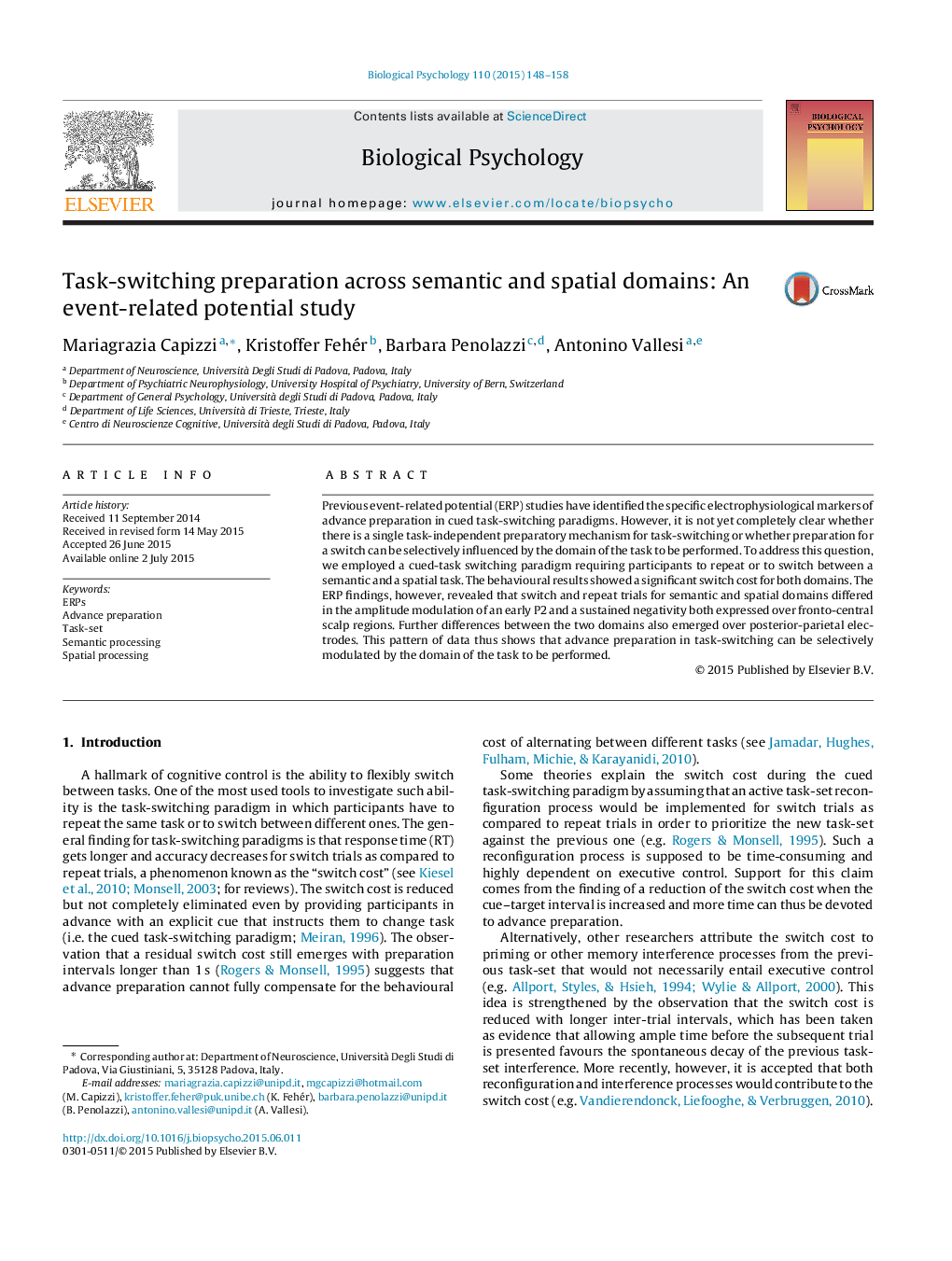| Article ID | Journal | Published Year | Pages | File Type |
|---|---|---|---|---|
| 920801 | Biological Psychology | 2015 | 11 Pages |
•It is unclear whether task-switching preparation relies on a central mechanism.•We compared task-switching preparation across semantic and spatial domains.•ERP data showed different modulations of the specific indexes of task-switching.•The domain of the task to be performed plays a key role in task-switching preparation.
Previous event-related potential (ERP) studies have identified the specific electrophysiological markers of advance preparation in cued task-switching paradigms. However, it is not yet completely clear whether there is a single task-independent preparatory mechanism for task-switching or whether preparation for a switch can be selectively influenced by the domain of the task to be performed. To address this question, we employed a cued-task switching paradigm requiring participants to repeat or to switch between a semantic and a spatial task. The behavioural results showed a significant switch cost for both domains. The ERP findings, however, revealed that switch and repeat trials for semantic and spatial domains differed in the amplitude modulation of an early P2 and a sustained negativity both expressed over fronto-central scalp regions. Further differences between the two domains also emerged over posterior-parietal electrodes. This pattern of data thus shows that advance preparation in task-switching can be selectively modulated by the domain of the task to be performed.
